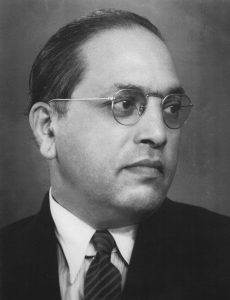Tags
autobiography, B.R. Ambedkar, caste, Four Noble Truths, identity, Maharashtra, Narendra Modi, race
Dr. Ambedkar, the 20th-century leader of the lowest (“Dalit”, formerly “untouchable”) Indian caste groups, might be having a moment. In my Indian philosophy class in 2019, I wanted to have a segment on modern Indian philosophy, so I introduced the students to Gandhi and to Ambedkar as a critic of Gandhi – and was interested to see how the students absolutely loved Ambedkar. This year, I attended a fascinating workshop at Princeton on black Buddhist perspectives, where Ambedkar probably played a larger role than any other figure, even the Buddha himself. I’m glad to see black Americans discovering Ambedkar, since there are such close analogies between American race and Indian caste – already observed by Martin Luther King. A recent Economist article now mentions that even Narendra Modi is trying to proclaim Ambedkar as an ally for his militant Hindu agenda – a claim that should be laughable, given Ambedkar’s clearly expressed hostility to Hinduism, but an understandable attempt given Ambedkar’s huge popularity in India: there are now more statues of Ambedkar than any other Indian political figure, including Nehru, Gandhi and Aśoka.
I find Ambedkar overall a very admirable figure – both his personal story of rising through the ranks intellectually and becoming a leader, and his accomplishments. I also find his approach to caste more sensible than the American approach to race, one that Americans could learn a lot from. My late father admired him greatly. He is also a figure who makes me personally uncomfortable – perhaps in a good way.
Continue reading
